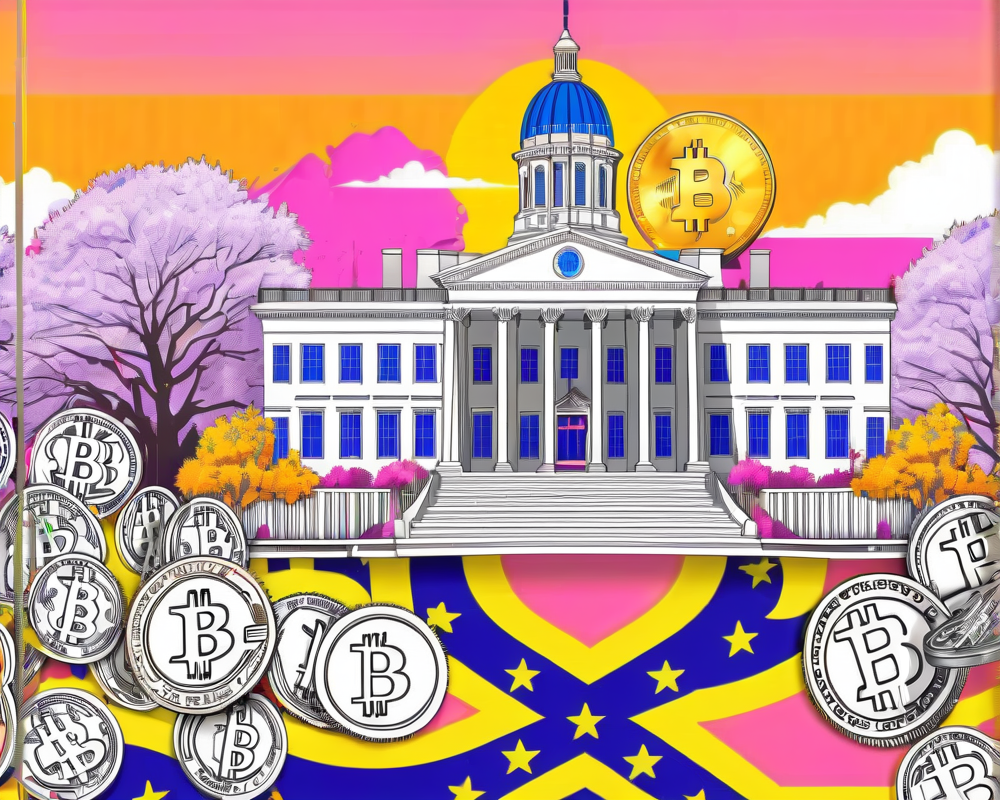A Not-So-Warm Welcome for Bitcoin
On January 20th, the New Hampshire House of Representatives dealt a blow to Bitcoin advocates by voting 264-74 against HB552, a bill poised to enable the state to accept taxes and fees in Bitcoin. A casual observer might think this reflects widespread ignorance, but you’d only be partially correct—let’s dive deeper.
Legislators and Their Bitcoin Journeys
Four legislators stood behind the now-defeated bill: Representative Eric Schleien, who introduced it, and his pals Representatives Keith Ammon, James Spillane, plus former representative George Lambert. Each has a unique backstory on how they fell down the Bitcoin rabbit hole.
- Rep. Schleien: Can’t quite recall where he first learned about Bitcoin, but is all in on its potential.
- Rep. Spillane: Accepted Bitcoin donations during his campaign and found out about it online, occasionally confused like most of us on the first read.
- Rep. Ammon: Discovered it at a Free State Project event through mathematics discussions—who said math was boring?
- Rep. Lambert: Became an avid user after discovering Bitcoin at the Porcupine Freedom Festival. Web hosting for Bitcoin? Sounds like a techie’s dream!
The Importance of HB552
HB552 wasn’t just a legislative doodle; it was a bold attempt to modernize tax collection in New Hampshire. Rep. Schleien touted it as a cheaper, more secure option for taxpayers compared to credit card payments. Unfortunately, the bill was more symbolic than substantive, and many doubted taxpayers would rush to pay their dues in Bitcoin.
The Age of Confusion
While the idea of accepting Bitcoin sounds futuristic, reality check—many legislators barely grasp the concept. Estimates suggest only about 40-75 of the 400-member House truly understand what Bitcoin even is, with some viewing it as “magic Internet money.” Watching them struggle to decode crypto-speak must feel like watching your grandparents try to set up Wi-Fi.
Barriers to Bitcoin Acceptance
The road to widespread Bitcoin acceptance isn’t paved with fluffy clouds. Rep. Spillane laments the strong ignorance among legislators, especially given that New Hampshire can’t even accept credit cards in certain government offices. Does it scream “need for education”? Absolutely.
The fear of failure and lack of understanding are major hurdles. As Rep. Schleien argues, there’s a critical need for education around Bitcoin and blockchain technology. Change can be hard, especially for a body filled with individuals who may never have ventured beyond their flip phones!
A Government-Free Future?
In a surprising twist, Lambert brought up the notion that it isn’t just about skepticism towards cryptocurrency; he suggests that it’s about recognizing that government might not be the oracle of protection many believe it to be. He’s got a point! What if Bitcoin thrives independent of governmental endorsement?
Rep. Ammon echoed this sentiment, proposing that the answer to legitimacy doesn’t reside in legislative approval. While the government and its members may lag in tech updates, the irrepressible nature of Bitcoin may ultimately benefit from its decentralized framework.
Conclusion: Looking Ahead
The defeat of HB552 may appear to have put the brakes on Bitcoin in New Hampshire, but don’t count it out just yet. The conversation around cryptocurrency is still evolving, and as education spreads, so might acceptance. After all, even the world’s most complex technologies started from confusion!




